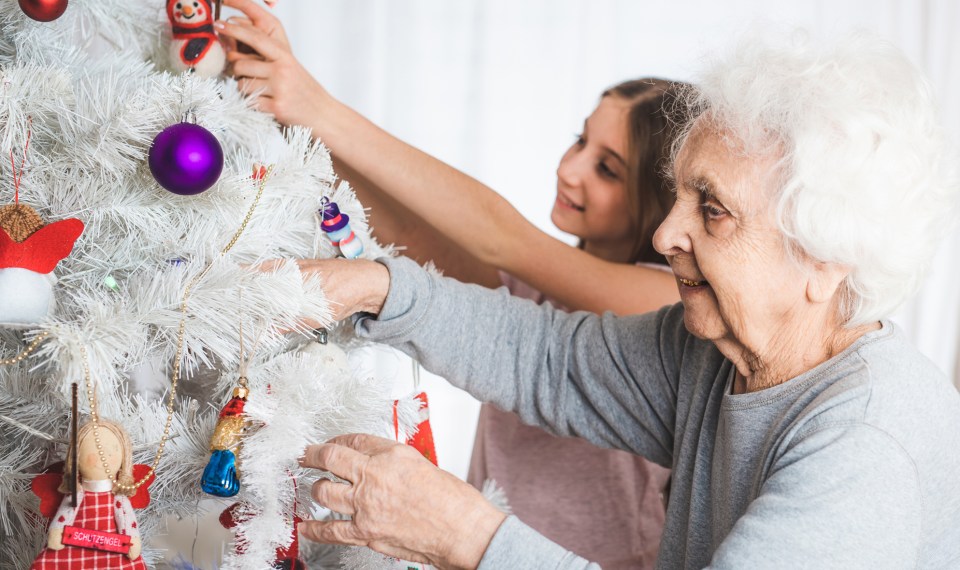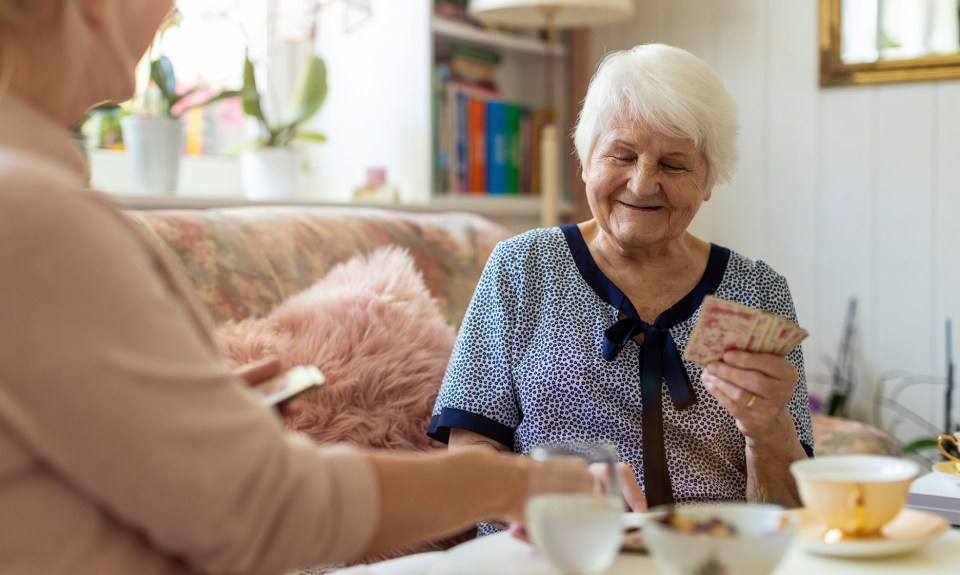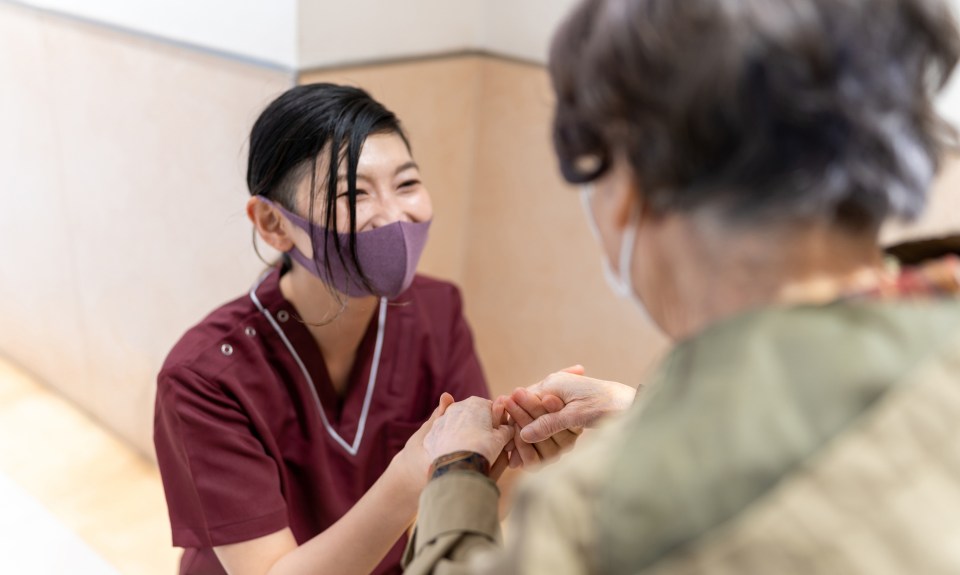The holidays are a time for gathering with family and friends and celebrating traditions. However, the hustle and bustle of the season can also be stressful, especially if you have a loved one with dementia.
All the change in routine the holidays bring could be confusing for them. People they may not have seen all year are suddenly coming and going, and once quiet evenings at home are now full of boisterous conversations and entertainment.
Since dementia is progressive, it can also be quite shocking for visiting family and friends who haven’t seen the person with dementia in many months.
If you are celebrating the season with someone with dementia, there are steps you can take to help make the holidays meaningful for all. Whether you are the primary caregiver or a visiting family member or friend, consider the following tips to help you manage—and enjoy—the season.
Try to Stick to Your Daily Routine as Much as Possible
If you are the primary caregiver, try to keep to your loved one’s routine when you can. Get them up at the same time in the morning and go to bed at the same time at night.
If your loved one has more difficulty later in the day with agitation or sun downing, it could be exacerbated by a change in routine. Caregivers usually know the triggers for the agitation as well as the best times in the day to entertain or to travel out for a bit. Late mid-morning to early afternoon may be the best times, but this will vary person to person.
Continuing Your Holiday Traditions
If the person with dementia was part of the tradition in the past, try to keep it going, as they may recall it.
Until the very late stages, folks with dementia often retain long-term memory. Keep as many traditions going as you can. Bringing out photo albums and mementos can also be very helpful. These events from their past could be comforting and meaningful to them.
Perhaps engage them in a task they’ve always done or been a part of, such as decorating the tree. This can be fun, especially if the ornaments have been in the family for years and there are old stories and memories to share.
Preparing Family and Friends
Some family members or friends may have not seen your loved one with dementia in some time; it can be quite traumatic. Some gentle reminders before they arrive could be appropriate. Remind them to not get upset if a loved one does not remember things or is repetitive.
You might also need to warn family that they may not be recognized or may be mis-recognized. This is often harder for the family member than the person with dementia. A gentle correction may be fine, but don’t go beyond that in trying to make the person remember.
Preparing Your Loved One with Dementia
This will be up to each individual caregiver and their loved one with dementia. Some individuals with dementia may still find it delightful to have visitors; others may have some anxiety.
If your loved one never liked visitors, dementia won’t change that, and you will likely hear about it. They may be more disinhibited and more likely to tell you what they’ve always thought. Everyone is different. Just remember, there likely isn’t any benefit in talking about visitors early due to the memory deficits. Usually, they are simply living in the moment.
Hosting Overnight Visitors
You know your loved one best. If you think it will be a problem having them stay in your house, then yes, have them get a hotel. If you think having visiting family and friends can help, then let them stay at your home.
People visiting are a deviation from the normal daily routine; that may cause some distress, but then again, it may not. If you are their primary caregiver, you likely have a good sense of this. Often, caregivers are well aware of what a loved one with cognitive difficulties can tolerate. This may change on a given day, so flexibility will be essential.
Be prepared to pivot. If you are not the caregiver, respect the caregiver’s requests.
Visiting Others or Traveling
If you are bringing your loved one with dementia to another house, assess the situation on an ongoing basis and decide when it is too much and time to head back home. Generally, these may be shorter visits as they may get overwhelmed or overstimulated.
Traveling greater distances with a person with dementia can be very difficult. Certainly it can be done, however, and is dependent upon the degree of dementia and the deficits. As stated before, more than ever, be prepared with some back-up plans. Pay close attention to avoid over stimulation, and know when to call it a day. Returning to a hotel or an unfamiliar bedroom may be difficult, as well.
Hosting Holiday Events
If you are hosting an event and serving as a caregiver simultaneously, be ready to bring your loved one back to their room or a familiar area to rest occasionally.
During the event, perhaps assign a trusted family member or friend to be a bit of a caretaker and stay close by them to help them feel secure.
Having Meaningful Conversations
Catching up with family and friends is a staple in most holiday traditions. However, communicating with a loved one with dementia can be challenging, especially if you’re not used to doing so. Individuals with dementia may have trouble finding words or forming complete thoughts. This can be frustrating, but as always, remember, this is the disease, not your loved one.
The following tips can help you better communicate with your loved:
- Avoid statements like, “You just asked me that,” or “Don’t you remember what we just talked about?” Your loved one is not doing it on purpose. The ability to retain new information or recent memories is a hallmark of dementia, especially Alzheimer’s. Trying to get them to remember could even make the individual more agitated.
- Remember they can still hear you. Don’t talk about the person like they are not around, and be careful about what is said around the person.
- Patience is critical. Often, families try to correct folks with cognitive deficits. If you try this, do it gently and only once. If there is no physical harm to the person, simply agreeing with your loved one will go a long way to avoid some frustration for everyone involved.
- Use good eye contact and clear enunciation in a soft tone.
- Roll with the conversation. Don’t overcorrect. For example, if they are talking about their deceased husband or wife as if they are alive, so be it. Correcting them would only cause undue pain and suffering. If they mistake you for someone else, you might try a gentle correction and see where that goes, but I wouldn’t push it.
- Never get upset with them. Again, it’s not their fault. People often want it to be; that would mean that they could control it, and things could go back to the way they were before dementia took hold.
Managing Caregiver Stress
If you are a caregiver, bless you. Visiting family may not have any idea how hard this job is and may minimize it. The holidays can be even more stressful than normal when you’re caring for a loved one with dementia.
Delegate as much as you can. You can’t stop being the primary caregiver, but this is the time to ask for some help if you need it. Well-meaning visitors may offer but might not be well-equipped or prepared to provide the appropriate assistance, so be careful of saying yes to everything, and remember to take frequent breaks and pace yourself.
The content of this site is for informational purposes only and should not be taken as professional medical advice. Always seek the advice of your physician or other qualified healthcare provider with any questions you may have regarding any medical conditions or treatments.




